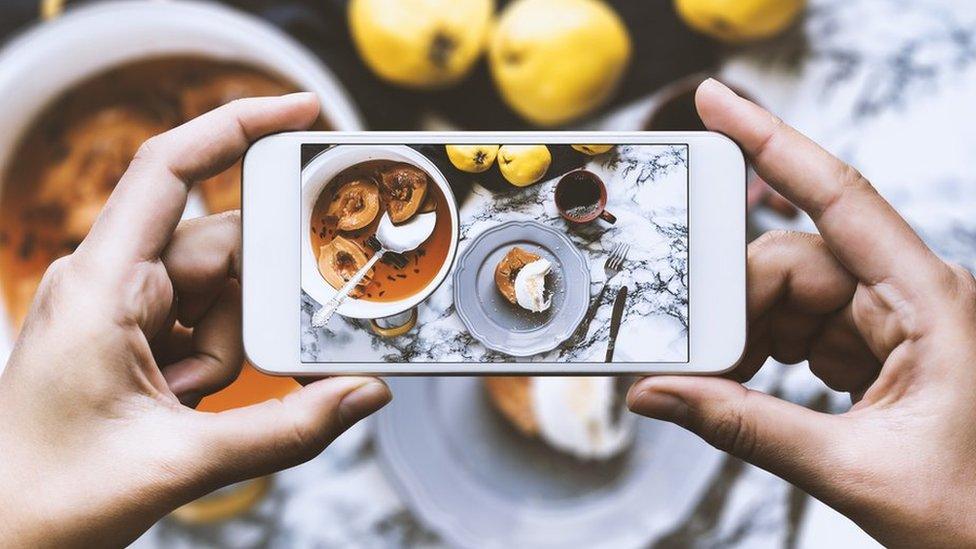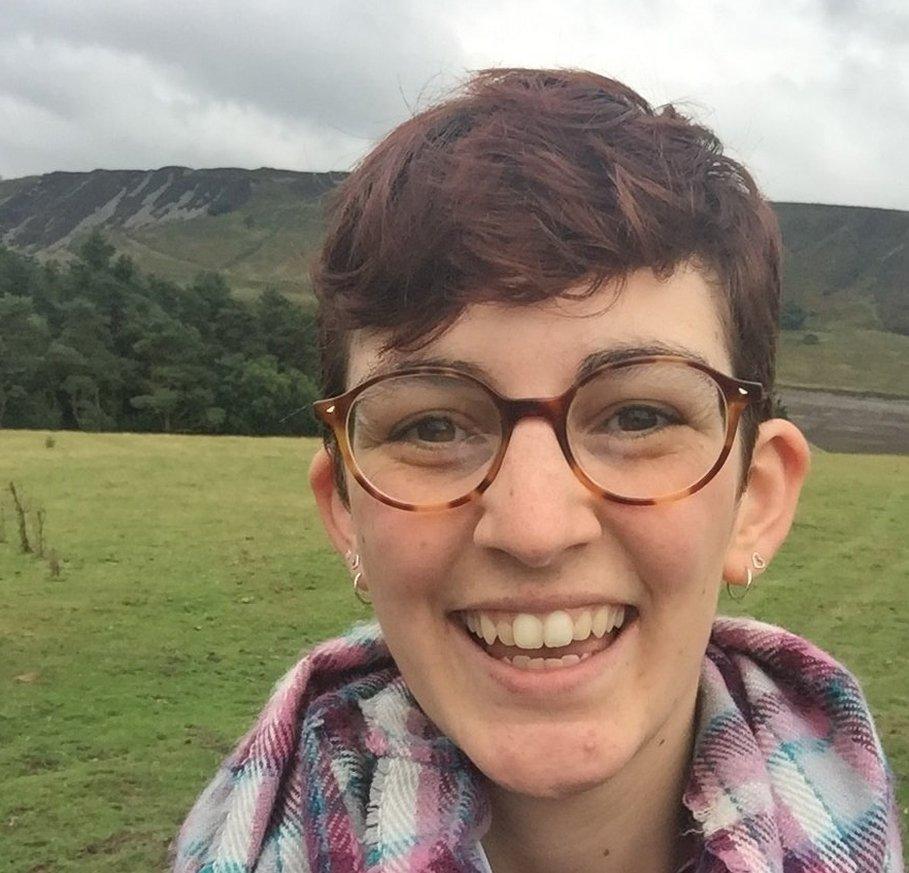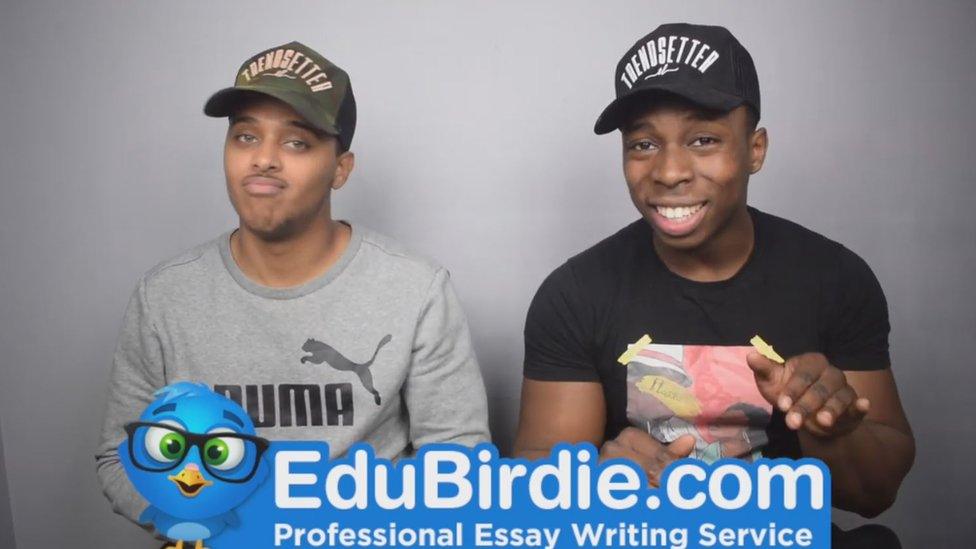Instagram tightens eating disorder filters after BBC investigation
- Published

Instagram has placed more hashtags which could promote eating disorders on an "unsearchable" list after a BBC investigation found that users were finding ways around the platform's filters.
The photo-sharing network has also added health warnings to several alternative spellings or terms which reference eating disorders, some of which are popular hashtags on the platform.
Starting in 2012, the photo-sharing site started to make some terms unsearchable, to avoid users being able to navigate directly to often shocking images, and posts that promote the idea that eating disorders are a lifestyle choice rather than a mental illness.
If someone enters the unsearchable terms into the platform's search box, no results will come up.
Other hashtags, when searched, will active a pop-up asking the user if they need help, with options to "learn more", cancel the search, or view content anyway.
BBC Trending found that certain terms promoting bulimia were still searchable - and that the Instagram search bar was suggesting alternative spellings and phrasings for known terms which some see as glamorising or encouraging eating disorders
In one case, the search box offered 38 alternative spellings of a popular term.

In response to our findings, Instagram made several alternative spellings unsearchable and added several others to the list of terms which trigger the health warning. Trending is not listing the specific hashtags on the list, but Instagram said it would continue to try to restrict content which appears to encourage eating disorders and self-harm.
"We do not tolerate content that encourages eating disorders and we use powerful tools and technologies - including in-app reporting and machine learning - to help identify and remove it," an Instagram spokesperson said in a statement.
"However, we recognize this is a complex issue and we want people struggling with their mental health to be able to access support on Instagram when and where they need it.
"We, therefore, go beyond simply removing content and hashtags and take a holistic approach by offering people looking at or posting certain content the option to access tips and support, talk to a friend, or reach out directly" to support groups, the statement said.

Bypassing filters
After Instagram and other social networks started to censor content that might encourage eating disorders, internet users attempted to navigate around the filters by deliberately misspelling commonly used eating disorder terms. The new hashtags could then be searched for on the platform.
While researching this story, we saw photos of skeletal bodies and posts that encourage extreme fasting.
Instagram, like most popular social networks, does not use moderators to proactively search for content that is against its rules. Instead it relies on other users to report violations.

You may also be interested in:

'Emaciated bodies'
Rose-Anne had anorexia when she was 17. She saw photos on Instagram of people who have self-harmed and describes them as "distressing".
She says: "There's quite a lot of people who have self-harmed and full-length images of really emaciated bodies."
"It can be quite distressing to see those images, but it can also trigger the eating disorder."

Rose-Anne says she found content encouraging eating disorders online
Rose-Anne, who has now recovered from anorexia, also found that the platform recommended weight-loss hashtags in her news feed, despite the fact that she only followed eating disorder recovery accounts.
"I was getting suggested content that included weight loss tips... And that was without me searching it," she says.
Rose-Anne's experience demonstrates the difficulty that algorithms have in personalising the user experience and in detecting the difference between potentially positive and potentially harmful content.
Social networks can exacerbate eating disorders, but experts say they may also play a role in helping those suffering from mental illness. Positive communities have formed on Instagram and other platforms, and users sometimes post eating disorder related content as a public cry for help.
Eating disorder charities are calling for social media networks to take more responsibility when it comes to policing content.
"The ideal situation is the content is not searchable and the content is removed but that if people are still searching for bad content, that health warning should come up every single time," says Tom Quinn of the eating disorder charity Beat.
Removing posts?
There's an argument that removing posts could drive discussion of eating disorders underground - where it's harder to moderate.
"It is unfortunate and it is true that there will be some people that if they can't find it on a readily accessible platform like Instagram will search for it in other ways," says Tom Quinn. "So while we recognize that some people will still find us content elsewhere that's no excuse for it still to be as readily accessible as it is currently."
Instagram rules prohibit content that "promotes or glorifies eating disorders" and the company says it will continue to develop its safety policies.
"Experts we work with tell us that communication is key in order to create awareness, and that coming together for support and facilitating recovery is important," a company spokesperson said.
If you need support with eating disorders, help and support is available: BBC Action Line.
Blog by Anisa Subedar, external
Reporting by Jo Whalley
Do you have a story for us? Email BBC Trending, external.
More from Trending: BBC exposes huge scale of online cheating ads

YouTube has deleted thousands of videos promoting academic cheating in the last week after a BBC Trending investigation.READ NOW
You can follow BBC Trending on Twitter @BBCtrending, external, and find us on Facebook, external. All our stories are at bbc.com/trending.